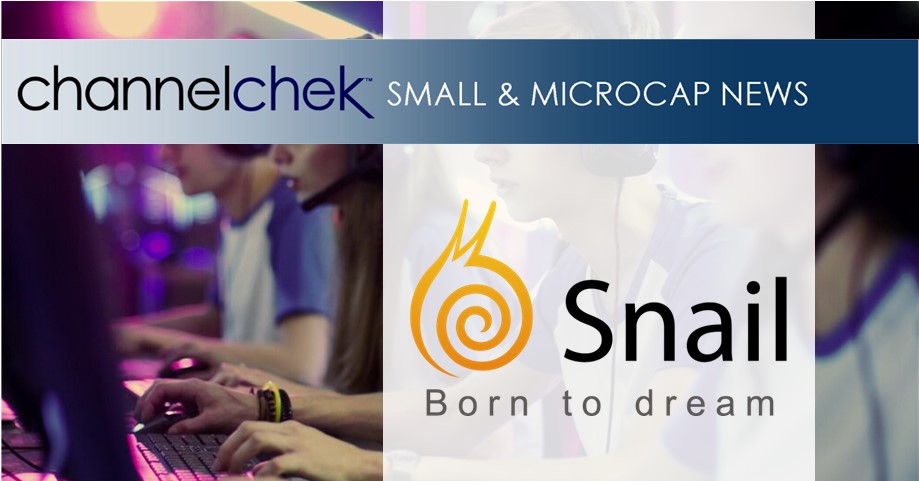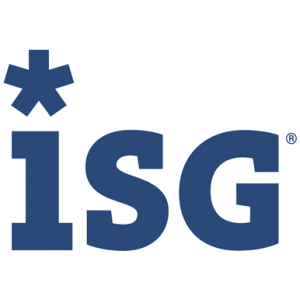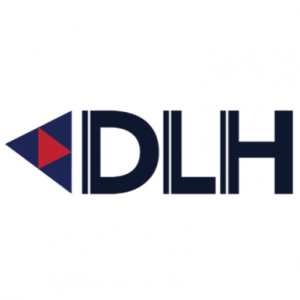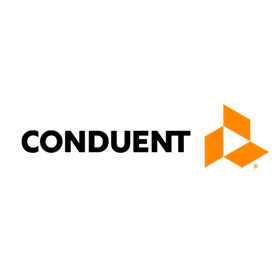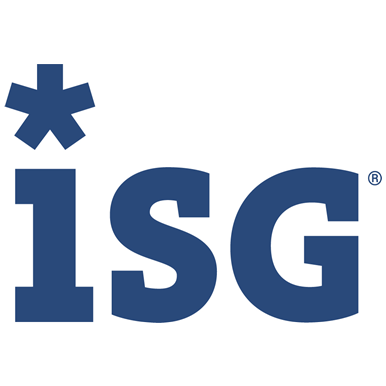Research News and Market Data on Perfect
April 28, 2025
NEW YORK–(BUSINESS WIRE)– Perfect Corp. (NYSE: PERF) (“Perfect” or the “Company”), a leading artificial intelligence (“AI”) company offering AI and augmented reality (“AR”) powered solutions to beauty and fashion industries, today announced its unaudited financial results for the three months ended March 31, 2025.
Highlights for the Three Months Ended March 31, 2025
- Total revenuewas $16.0 million for the three months ended March 31, 2025, compared to $14.3 million in the same period of 2024, an increase of 12.1%. The increase was primarily due to growth momentum in the revenue of AI- and AR- cloud solutions and mobile app and web services subscriptions.
- Gross profitwas $12.5 million for the three months ended March 31, 2025, compared to $11.2 million in the same period of 2024, an increase of 11.4%.
- Net income was $2.3 million for the three months ended March 31, 2025, compared to a net income of $0.6 million during the same period of 2024, an increase of 264.0%.
- Adjusted net income (non-IFRS)1was $2.0 million for the three months ended March 31, 2025, compared to adjusted net income (non-IFRS) of $1.5 million in the same period of 2024, an increase of 33.3%.
- Operating cash flowwas $4.3 million in the first quarter of 2025, compared to $3.5 million in the same period of 2024, an increase of 22.8%.
- The number of active subscriber for the Company’s YouCam mobile beauty app and web services was 973,000 as of March 31, 2025, compared to over 902,000 as of March 31, 2024, an increase of 7.9%.
- As of March 31, 2025, the Company’s cumulative customer base included 801 brand clients, with over 891,000 digital stock keeping units (“SKUs”) for makeup, haircare, skincare, eyewear, watches and jewelry products, compared to 732 brand clients and over 822,000 digital SKUs as of December 31, 2024. The number of Key Customers2of the Company as of March 31, 2025 was 148 compared to 151 as of December 31, 2024. This slight decrease was primarily driven by an increase in churn among North American client as a result of rising financial challenges in the macroeconomic environment.
Ms. Alice H. Chang, the Founder, Chairwoman, and Chief Executive Officer of Perfect commented, “Despite recent macroeconomic uncertainties, we continue to achieve revenue growth, maintain positive net income, generate healthy cash flow, with a robust balance sheet and positive operating cash flow. The consistent performance reflects the resilience of our team and the leadership of our management. By seizing market opportunities and expanding our total addressable market, we are not only attracting new clients but also building a solid foundation for sustained, long-term growth.”
Financial Results for the Three Months Ended March 31, 2025
Revenue
Total revenue was $16.0 million for the three months ended March 31, 2025, compared to $14.3 million in the same period of 2024, an increase of 12.1%.
- AI- and AR- cloud solutions and subscription revenue was $14.1 million for the three months ended March 31, 2025, compared to $12.4 million in the same period of 2024, an increase of 13.3%. The increase was driven by the growth of YouCam mobile app and web services subscription, stable demand for the Company’s online virtual product try-on solutions from brand customers, and the growing popularity among consumers of Generative AI technologies and AI editing features for photos and videos. The growth in the mobile app and web services subscription revenue was also contributed by the continuous pricing optimization as well as the introduction of higher margin premium subscription plan, featuring enhanced functionality for more advanced Generative AI functionalities.
- Licensing revenue remains stable at $1.6 million for the three months ended March 31, 2025 and March 31, 2024, respectively. The Company expects the licensing revenue will become increasingly immaterial as it continues to focus on strengthening its market leadership in the consumer beauty and AI mobile apps as well as in the beauty and fashion AI- and AR- industry.
Gross Profit
Gross profit was $12.5 million for the three months ended March 31, 2025, compared with $11.2 million in the same period of 2024, an increase of 11.4%. Gross margin was 77.9% for the three months ended March 31, 2025, from 78.3% in the same period of 2024. The slight decrease in gross margin was primarily due to the increase in third-party payment processing fees paid to digital distribution partners, such as Google and Apple, due to the steady growth in our YouCam mobile app and web services subscription revenue.
Total Operating Expenses
Total operating expenses were $12.6 million for the three months ended March 31, 2025, compared with $12.4 million in the same period of 2024, an increase of 2.0%. The increase was primarily due to increases in research and development (“R&D”) and sales and marketing expenses, which was mostly offset by a decrease in general and administrative expenses in the first quarter of 2025.
- Sales and marketing expenseswere $7.4 million for the three months ended March 31, 2025, compared to $7.2 million during the same period of 2024, an increase of 2.6%. This increase was primarily due to an increase in marketing events and advertising expenses related to our mobile apps and cloud computing.
- Research and development expenseswere $3.6 million for the three months ended March 31, 2025, compared to $3.0 million during the same period of 2024, an increase of 17.5%. The increase resulted from increases in R&D headcount and related personnel costs.
- General and administrative expenseswere $1.7 million for the three months ended March 31, 2025, compared to $2.2 million during the same period of 2024, a significant decrease of 21.6%. The decrease was primarily due to reduced corporate insurance premium and external professional service fees.
Net Income
Net income was $2.3 million for the three months ended March 31, 2025, compared to a $0.6 million during the same period of 2024, an increase of 264.0%. The increase in net income was primarily due to (i) our steady revenue growth and effective cost control , and (ii) an increase in gains from financial liabilities in connection with our outstanding warrants.
Adjusted Net Income (Non-IFRS)
Adjusted net income was $2.0 million for the three months ended March 31, 2025, compared to $1.5 million in the same period of 2024, an increase of 33.3%.
Liquidity and Capital Resource
As of March 31, 2025, the Company’s cash and cash equivalents remained stable at $128.3 million (or $164.6 million when including 6-month time deposits of $36.3 million, which are classified as current financial assets at amortized cost under IFRS), compared to $127.1 million as of December 31, 2024 (or $165.9 million when including time deposits and money market funds).
The Company had a positive operating cash flow of $4.3 million in the first quarter of 2025, compared to $3.5 million in the same period of 2024. The Company continues to invest in growth while maintaining a healthy cash reserve to support business operations underscoring the Company’s operational health and sustainability.
Business Outlook for 2025
Based on the growth momentum in both YouCam mobile apps and web subscriptions and enterprise SaaS solution demands, the Company reiterates its expectation of a 13.0% to 14.5% year-over-year total revenue growth for 2025, compared to 2024.
Note that this forecast is based on the Company’s current assessment of the market and operational conditions, and that these factors are subject to change.
Conference Call Information
The Company’s management will hold an earnings conference call at 8:00 p.m. Eastern Time on April 28, 2025 (8:00 a.m. Taipei Time on April 29, 2025) to discuss the financial results. For participants who wish to join the call, please complete online registration using the link provided below in advance of the conference call. Upon registering, each participant will receive a participant dial-in number and a unique access PIN, which can be used to join the conference call.
Registration Link: https://registrations.events/direct/Q4I51630494
A live and archived webcast of the conference call will also be available at the Company’s investor relations website at https://ir.perfectcorp.com.
About Perfect Corp.
Founded in 2015, Perfect Corp. is a leading AI company offering self-developed AI- and AR- powered solutions dedicated to transforming the world with digital tech innovations that make your virtual world beautiful. On its direct to consumer business, Perfect operates a family of YouCam consumer apps and web-editing services for photo, video and camera users, centered on unleashing creativity with AI-driven features for creation, beautification and enhancement. On Perfect’s enterprise business side, Perfect empowers major beauty, skincare, fashion, jewelry, and watch brands and retailers by supplying them with omnichannel shopping experiences through AR product try-ons and AI-powered skin diagnostics. With cutting-edge technologies such as Generative AI, real-time facial and hand 3D AR rendering and cloud solutions, Perfect enables personalized, enjoyable, and engaging shopping journey and helps brands elevate customer engagement, increase conversion rates, and propel sales growth. Throughout this journey, Perfect maintains its unwavering commitment to environmental sustainability and fulfilling social responsibilities. For more information, visit https://ir.perfectcorp.com/.
Forward-Looking Statements
This communication contains forward-looking statements within the meaning of Section 27A of the U.S. Securities Act of 1933, as amended, or the Securities Act, and Section 21E of the U.S. Securities Exchange Act of 1934, as amended, or the Exchange Act, that are based on beliefs and assumptions and on information currently available to Perfect. In some cases, you can identify forward-looking statements by the following words: “may,” “will,” “could,” “would,” “should,” “expect,” “intend,” “plan,” “anticipate,” “believe,” “estimate,” “predict,” “project,” “potential,” “continue,” “ongoing,” “target,” “seek” or the negative or plural of these words, or other similar expressions that are predictions or indicate future events or prospects, although not all forward-looking statements contain these words. Any statements that refer to expectations, projections or other characterizations of future events or circumstances, including strategies or plans, are also forward-looking statements. These statements involve risks, uncertainties and other factors that may cause actual results, levels of activity, performance or achievements to be materially different from those expressed or implied by these forward-looking statements. These statements are based on Perfect’s reasonable expectations and beliefs concerning future events and involve risks and uncertainties that may cause actual results to differ materially from current expectations. These factors are difficult to predict accurately and may be beyond Perfect’s control. Forward-looking statements in this communication or elsewhere speak only as of the date made. New uncertainties and risks arise from time to time, and it is impossible for Perfect to predict these events or how they may affect Perfect. In addition, risks and uncertainties are described in Perfect’s filings with the Securities and Exchange Commission. These filings may identify and address other important risks and uncertainties that could cause actual events and results to differ materially from those contained in the forward-looking statements. Perfect cannot assure you that the forward-looking statements in this communication will prove to be accurate. There may be additional risks that Perfect presently does not know or that Perfect currently does not believe are immaterial that could also cause actual results to differ from those contained in the forward-looking statements. In light of the significant uncertainties in these forward-looking statements, you should not regard these statements as a representation or warranty by Perfect, its directors, officers or employees or any other person that Perfect will achieve its objectives and plans in any specified time frame, or at all. Except as required by applicable law, Perfect does not have any duty to, and does not intend to, update or revise the forward-looking statements in this communication or elsewhere after the date of this communication. You should, therefore, not rely on these forward-looking statements as representing the views of Perfect as of any date subsequent to the date of this communication.
Use of Non-IFRS Financial Measures
This press release and accompanying tables contain certain non-IFRS financial measures, including adjusted net income, as supplemental metrics in reviewing and assessing Perfect’s operating performance and formulating its business plan. Perfect defined these non-IFRS financial measures as follows:
Adjusted net income (loss) is defined as net income (loss) excluding one-off transaction costs3, non-cash equity-based compensation, and non-cash valuation (gain)/loss of financial liabilities. For a reconciliation of adjusted net income (loss) to net income (loss), see the reconciliation table included elsewhere in this press release.
Non-IFRS financial measures are not defined under IFRS and are not presented in accordance with IFRS. Non-IFRS financial measures have limitations as analytical tools, which possibly do not reflect all items of expense that affect our operations. Share-based compensation expenses have been and may continue to be incurred in our business and are not reflected in the presentation of the non-IFRS financial measures. In addition, the non-IFRS financial measures Perfect uses may differ from the non-IFRS measures used by other companies, including peer companies, and therefore their comparability may be limited. The presentation of these non-IFRS financial measures is not intended to be considered in isolation from or as a substitute for the financial information prepared and presented in accordance with IFRS. The items excluded from our adjusted net income are not driven by core results of operations and render comparison of IFRS financial measures with prior periods less meaningful. We believe adjusted net income provides useful information to investors and others in understanding and evaluating our results of operations, as well as providing a useful measure for period-to-period comparisons of our business performance. Moreover, such non-IFRS measures are used by our management internally to make operating decisions, including those related to operating expenses, evaluate performance, and perform strategic planning and annual budgeting.

